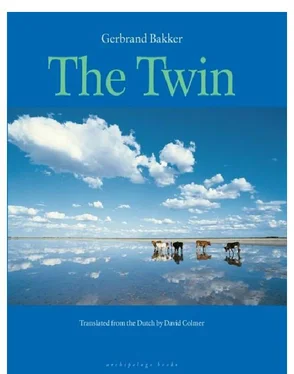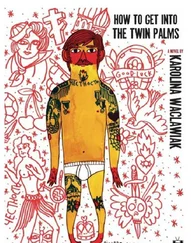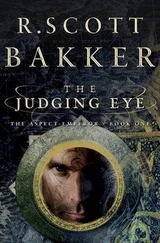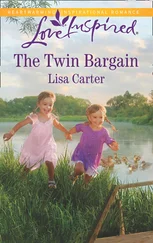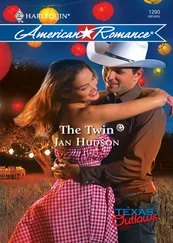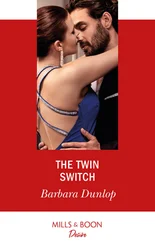Father hasn’t eaten the mandarins. I don’t want to know. I carried him upstairs and now he can go and perch on the roof as far as I’m concerned, and then, from there, he can carry on to the tops of the poplars that line the yard so that he can blow away on a gust of wind, into the sky. That would be best, if he just disappeared.
“I can’t get the peel off,” he says.
I try not to look at the mandarins on the bedside cabinet or the crooked fingers on the blanket. It really is starting to stink in here, despite my always keeping the window ajar. If he won’t disappear, I’ll have to wash him. Before drawing the curtains, I cup my hands against the windowpane to block out the light from the lamp. With my face pressed against my hands I peer out at the ash in the front garden. The hooded crow has gone. Or is it so dark that it blends in with the branches and the night sky?
Then I see someone walking. There are lampposts along the road, one for each house or farm. That makes a total of seven lampposts. There has been something wrong with my lamppost for a few weeks now. It glows, but that’s all; even if you stood right under it, the light wouldn’t reach you. The venetian blinds in the living room are closed. It is so dark outside that I can only see that someone is walking and, now, that they have stopped in front of the farm. A dark patch, barely visible against the canal in the background. I can’t even see which direction the patch is looking in.
“What is it?” asks Father.
“Someone on the road,” I whisper.
“Who?”
“I can’t see properly.” Then the patch moves and suddenly acquires a bicycle’s red back light. I follow the back light until it disappears past the window frame. I jerk the curtains shut. My heart is beating in my throat. “All right then,” I say, picking the mandarins up from the bedside cabinet. I peel them both, remove the bitter white threads and hand them to Father in segments. Soon the juice is running down his chin.
“Delicious,” he says.
I’ve been scared all my life. Scared of silence and darkness. I’ve also had trouble falling asleep all my life. I only need to hear one sound I can’t place and I’m wide awake. Still, I’ve never really stopped to think about what happens outside at night. Of course, in the old days I used to see all kinds of things pass the window, even though I knew that the window was high above the gravel path. I saw shoulders: the tense, hunched shoulders of someone climbing up the front of the house. Like a panther, sometimes with one arm hooked over the window ledge. Then I’d listen to Henk breathing next to me, or later imagine him asleep in the bedroom next to mine, and the shoulders or whatever else I thought I had seen would disappear. In the back of my mind I knew that I saw things that couldn’t possibly be there.
Now, after what I saw on the road and after feeding Father, I lie in my bed with my eyes squeezed shut. Sleep, I think, sleep. But I see sheep lying in the field, groaning and chewing the cud, gray smudges in a greenish-black expanse, and crows in the poplars with their feathers fluffed up around their heads, and the donkeys facing each other, close to the gate, necks bent as if they were sleeping on their feet with their heads touching, and the Bosman windmill, which I have stopped again, standing by itself in the far corner, gleaming pale gray when there are breaks in the clouds, and someone by the windmill, looking up at the tail and reading “No. 40832.” When I see that before me, I open my eyes. Is that a common occurrence, someone standing motionless in front of the farm on autumn nights? And would I have ever known if I hadn’t happened to look out of the window?
Later I think of the lads in canoes. The first, the one who said it is timeless here, is vague and soon gone. The other one, the redhead with sunburnt shoulders, sticks in my mind. He said something, but what he said doesn’t matter. He saw it, and he saw me. A fairly old farmer in faded blue overalls with the top buttons undone because it was a hot day. Standing next to a farmhouse, in the shade, with no reason to be there except to look on motionlessly, holding his breath. Who has grown older every day since 1967 without anything else changing. No, one thing has changed, the donkeys, and it was the donkeys, of all things, that he commented on. He called them old-fashioned. So it does matter what he said. They paddle out onto Opperwoud Canal, laughing, young, self-obsessed and quick to forget. At the end of the canal the sun is setting. That’s impossible because the canal runs eastwards, from here the sun never sets in Lake IJssel, but it can now, and the boys turn into silhouettes with voices that grow weaker and weaker. Then they’re gone. Now, I think, now I’ll fall asleep. If you think it, you can forget it. The imaginary sun reminds me of the sea, twenty miles to the west as the crow flies. Long ago we went there, twice in one summer. On both days it grew cloudy during the afternoon. Mother wanted to see the sun sink into the water and convinced Father to let the farmhand do the milking by himself. I have never seen the sun go down in the sea, although I could, hardly any distance away.
I hear something. I think it’s beneath my window and the hair on the back of my neck prickles. I think of Father, upstairs. He’s no use to anyone any more, but I need him now, after all, to conquer my fear.
Maybe the red-headed boy thinks of me sometimes: that old farmer who just stood there, on that beautiful summer’s day.
“Old? Helmer, you’re nowhere near old.” Ada, Teun and Ronald’s mother, is sitting opposite me at the kitchen table. “Your father, okay, he’s old.”
Ada has heard things from her sons. Things about donkeys and “wooden strips” in front of windows. She is curious. “You know who else is old? Klaas van Baalen, who lives just outside Broek. He’s your age and lives in complete squalor. He can’t look after himself. Just the other day they took away his sheep, completely neglected, balls of wool and rattling bones.”
I had forgotten that Ada drinks her coffee black these days, and put it down to getting old.
Ada thought it was “fantastic,” all the things I’d done in the bedroom and the living room. The blue of the floors and the woodwork was “just gorgeous” and she was especially impressed by the spaciousness. I did need to buy a duvet, in her opinion. Blankets, no , that really wasn’t on any more, that was “very, very old-fashioned” and sleeping under a duvet was “much comfortabler.” (“Is that actually a word?” she wondered afterwards.) She wanted to know how much I had paid for the venetian blinds and considered getting rid of her own curtains at home (“those dust traps”). Had I just thrown away the chairs? No, wait, actually she already knew that, she suddenly remembered one of Teun and Ronald’s stories, something about a “carpet house.” She’d “simply adore” it, just throwing things out, making space, instead of always hanging on to everything. She walked into the bedroom one more time. Why did I still sleep in a single bed? In a double I’d have “room to stretch.” She gave me a mischievous look when she said that. And that duvet, “you really should, you know,” because then I could buy some nice blue duvet covers and that would make it even “fresher” and more beautiful.
On her way to the kitchen she spread her arms to indicate the bare walls of the living room. Art. Why didn’t I buy “some art”?
Ada is still young, about thirty-five. Her husband is at least ten years older, maybe fifteen. She’s bursting with energy. If she had her way, she’d come to my house to clean once a week instead of once a year, in April, as she does now. She’s treasurer of the local Women’s Institute, makes quilts, is a member of a reading group, supports her local community and is busy planting “the most beautiful garden in all of Waterland.” She reminds me of Mother because she is almost as ugly, but in Ada’s case the cause is a harelip that wasn’t corrected all that neatly. Her boys are beautiful, with blond hair, long lashes and perfect mouths. She’s not from round here, and maybe that’s why she knows everything about everyone for miles around.
Читать дальше
